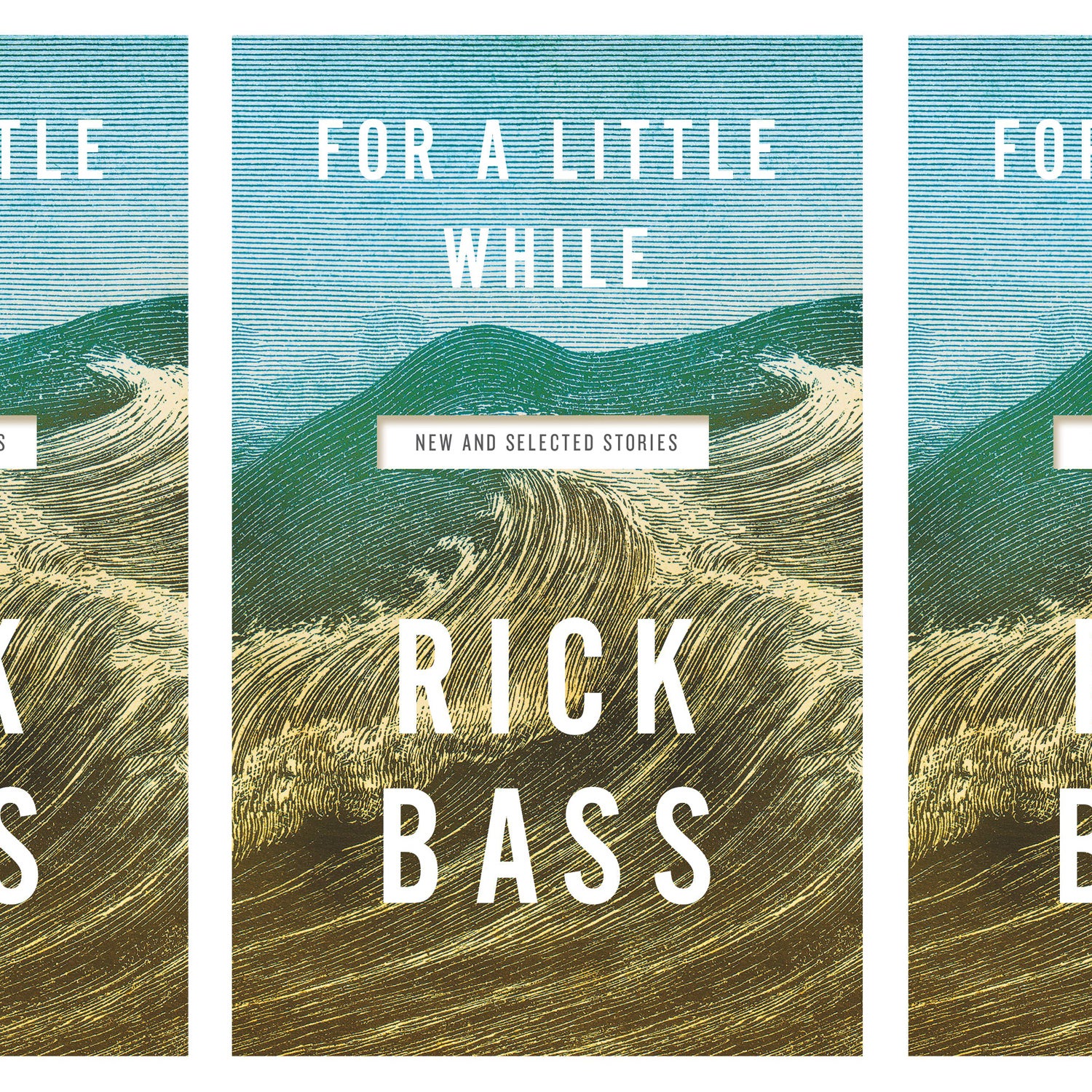Rick Bass is an unbelievably quiet writer. Since he began publishing fiction and contemporary environmental history in the early 1980s, the Fort Worth native and former petroleum engineer has chosen subjects who express themselves simply and concisely, and who reside a long way from cities and the bustle of human activity.
Dialogue is scarce in Bass’s new book, For A Little While, a collection of 25 works of short fiction released this month. Instead of making his characters explain themselves, Bass sets them in moments of slow, methodical change: two companions hunt and kill an elk. A family walks home on a winter night after their car breaks down. An athlete completes a long, uphill run. Rather than delve into a character’s past, Bass chooses to use their present actions—and immediate surroundings—as the starting place for readers to draw whatever and however much meaning they can.
In the story “Field Events,” a muscular loner called A.C. befriends two young men who contemplate holding him hostage and teaching him to throw the discus. Instead, A.C. excels in the new sport by his own volition. We get no explanation of A.C.’s own origins and purposes, other than as a welcome stranger. We learn little about where he came from. A recruiter from Team USA is never summoned. His role, above all, is physical.
This can make for frustrating reading, even for ���ϳԹ��� readers (myself included) who are suckers for stories in which the physical world becomes a theater in which human wounds and anxieties are worked out. It can be tough to decide in what state or even in what region of the country Bass has set a story. Some characters are so abstract as to resemble readymades, apart from the odd habit or quirk that only makes them more mysterious and less relatable.
That seems to be the point. In his career at large, Bass has shown an intense interest in human relationships and how they falter, but most of the time, it’s nature, rather than a human character, that does the talking, and even as he imbues nature with a tremendous power to change people, Bass is unlikely to treat it as a site of resolution or redemption.
In 1995, ���ϳԹ��� published an essay Bass had written in response to a bill that would open 22 million acres of public land in southern Utah to development and resource extraction, in which he described his reasons for moving from the Gulf region to the West. The language was highly personal, and reflected a refined sense of what the natural world is and isn’t supposed to do.
I wanted to find a land, a place, large enough to hold the feelings I held about the world, about this life we've been given. I wanted to explore what was possible, not just probable. I wanted more space in both the imagination and beneath my feet.
Twenty years later, the dispute in Utah remains unsettled. Bass remains a highly persuasive speaker for the conservation movement for the same reason he is a masterful storyteller: He recognizes that wilderness, for all the possibilities that it opens up, is too cruel and too complicated to serve as a passive agent for what we want. The world doesn’t work that way, and neither does compelling fiction.
In “The River in Winter,” one of my favorite stories in For a Little While, the teenage son of a drowning victim is recruited to help pull a stranger’s car from beneath the ice. It’s late at night, booze is involved, and Bass’s description is as slow and meticulous as the process he describes: the boy’s dive into the water, his tying a chain to the rear bumper, his search for the hole in the ice from which he came, and the townspeople and horses who slowly pull the car to the surface.
While it wasn’t an even trade, his father for the truck, it was a start, and Brandon felt that he had moved some distance forward—though he could not explain the anger and confusion he felt whenever he saw the truck drive through town, newly polished and running fine.
The job is done, but it comes as no source of satisfaction, or even relief. Instead, we’re given more of the cold, stylized understatedness that colors the rest of the story. Such an approach is probably a million times more difficult than it looks, and yet it is where Bass seems most comfortable, letting trauma go mostly unacknowledged (or at least undiscussed).
One exception to this may be “,” about Wilson, a near-divorced logger taking his two daughters on vacation to South America. His trauma is well marked out, his hopes and anxieties are clear, and there are even moments of insight to his thinking, such as when Wilson watches dolphins swimming in the Pacific Ocean (“Without a word, but with a euphoria so large in his heart it felt monstrous, Wilson climbed over the railing and leapt in.”), or when his children offer him a blazer and dress shoes from an outdoor market (“They like me the way I am, he thought, but maybe they just want me to look a little better.”).��
Bass rarely describes an emotional state so explicitly, but when he does, it packs a punch. Wilson doesn’t drown or lose his arm to a shark, and his show of spontaneity in the Pacific Ocean doesn’t help impress his kids or win back his wife. The wilderness isn’t a therapist’s office. It isn’t a controlled environment, it isn’t medicine, and it isn’t there to serve as a tidy metaphor. It’s just there.


